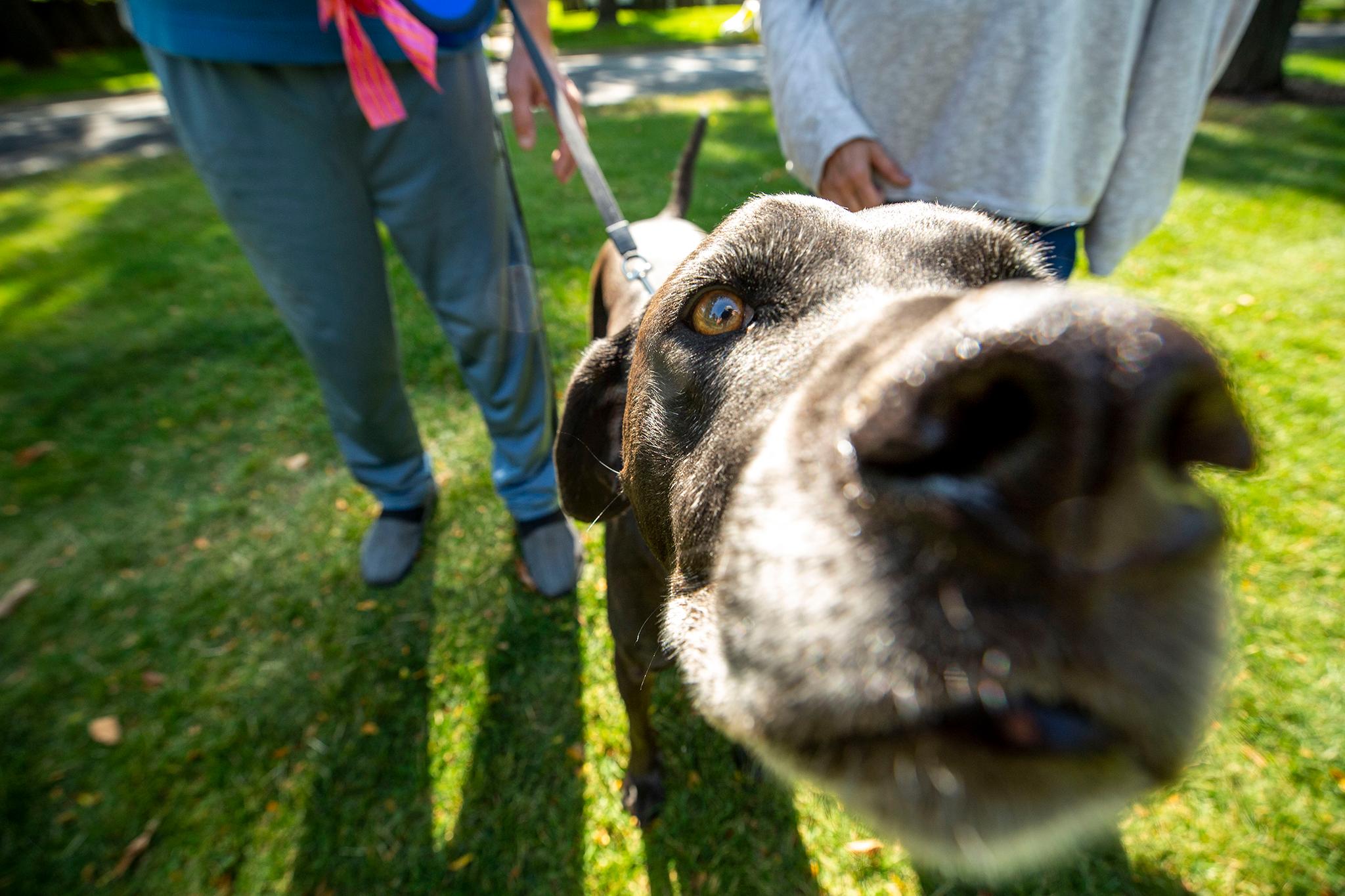MJ and Josh Weiss walk their labrador, Junebug, along the 6th Avenue Parkway nearly every day. So they noticed when the little green dog-poop trashcans, which used to line the grassy strip, vanished about a month ago.
It's not a huge deal for them - Josh said they just hang onto filled baggies until they get home - but they do worry other walkers won't be so diligent.
"We're grownups. So if she poops, we put it in a bag and bring it with us. Obviously, there are a lot of people who aren't grownups," Josh said.
A lot of dog lovers have reacted with mild annoyance over the last few weeks. Some said they've seen more trash on the ground as result.
But the case of the missing trashcans is not a mystery: Denver is scrambling to work with hundreds of millions of dollars in lost revenue due to the COVID recession, and those bins are some of the first visible cuts as things begin to change for the long haul.
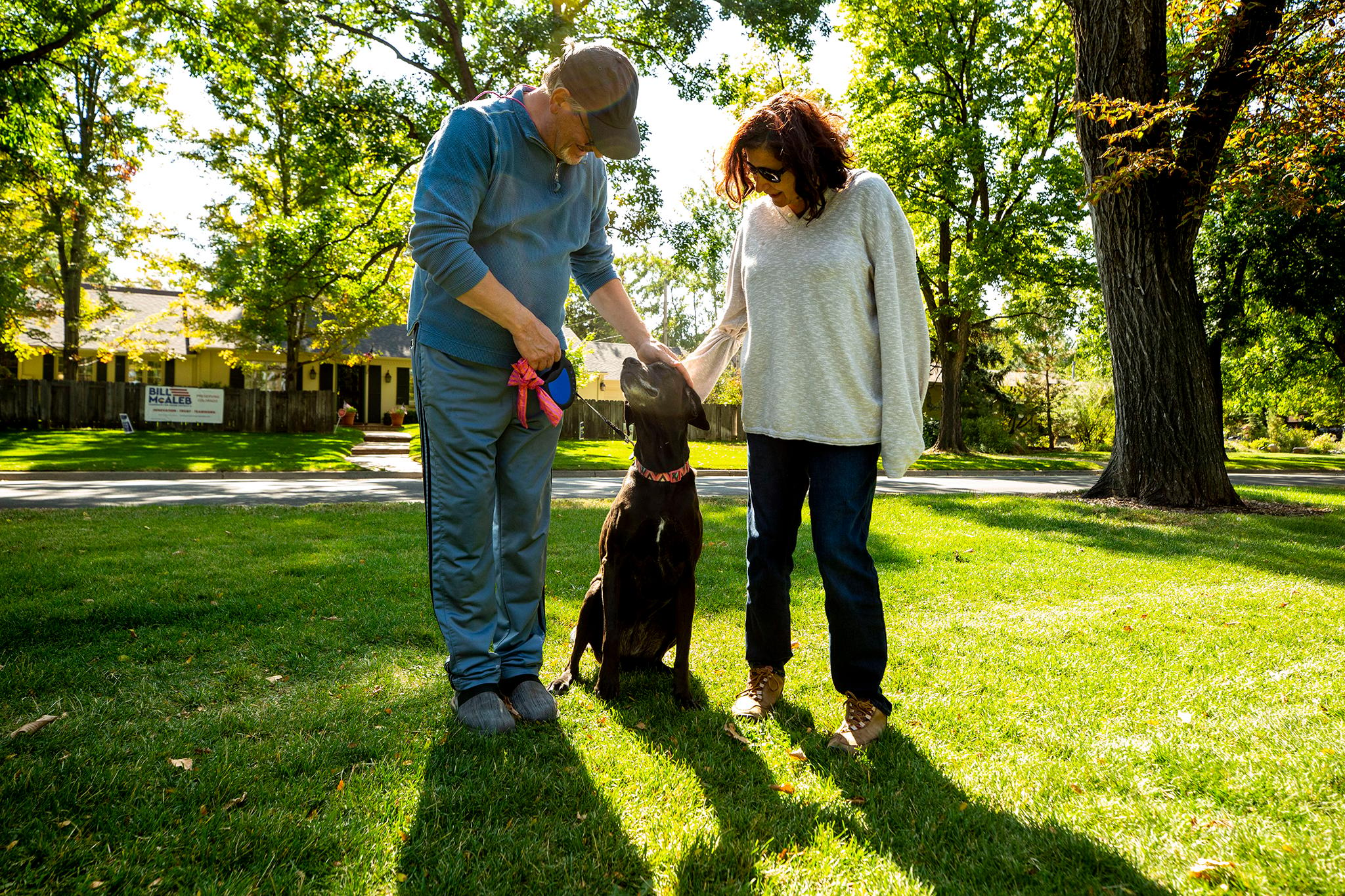
Denver Parks and Rec has cut its on-call workforce in half.
That's according to Deputy Executive Director Scott Gilmore, who said his department hired about 90 seasonal workers this year. They usually bring on 180. He said on-call workers tend to be recent college grads who want to work their way into permanent positions. It's these entry-level workers who go out and empty trashcans, and fewer employees mean reduced capacity.
Gilmore said he left it up to his staff to decide which activities would be cut, but he added the 6th Ave. crap canisters have long represented a lot of work with minimal impact.
"I'm having two people people drive down the parkway to empty five or six trashcans that have three to four bags of poop in each one," he said.
He can't put a specific dollar figure on savings for this particular cut, but it's one small piece of a bigger puzzle. The department will also mow less often, plant fewer flower beds and fund fewer community programs. Gilmore said the 6th Avenue receptacles may never return, and he doubts Parks will hire 180 on-call workers for years to come, if ever at all again.
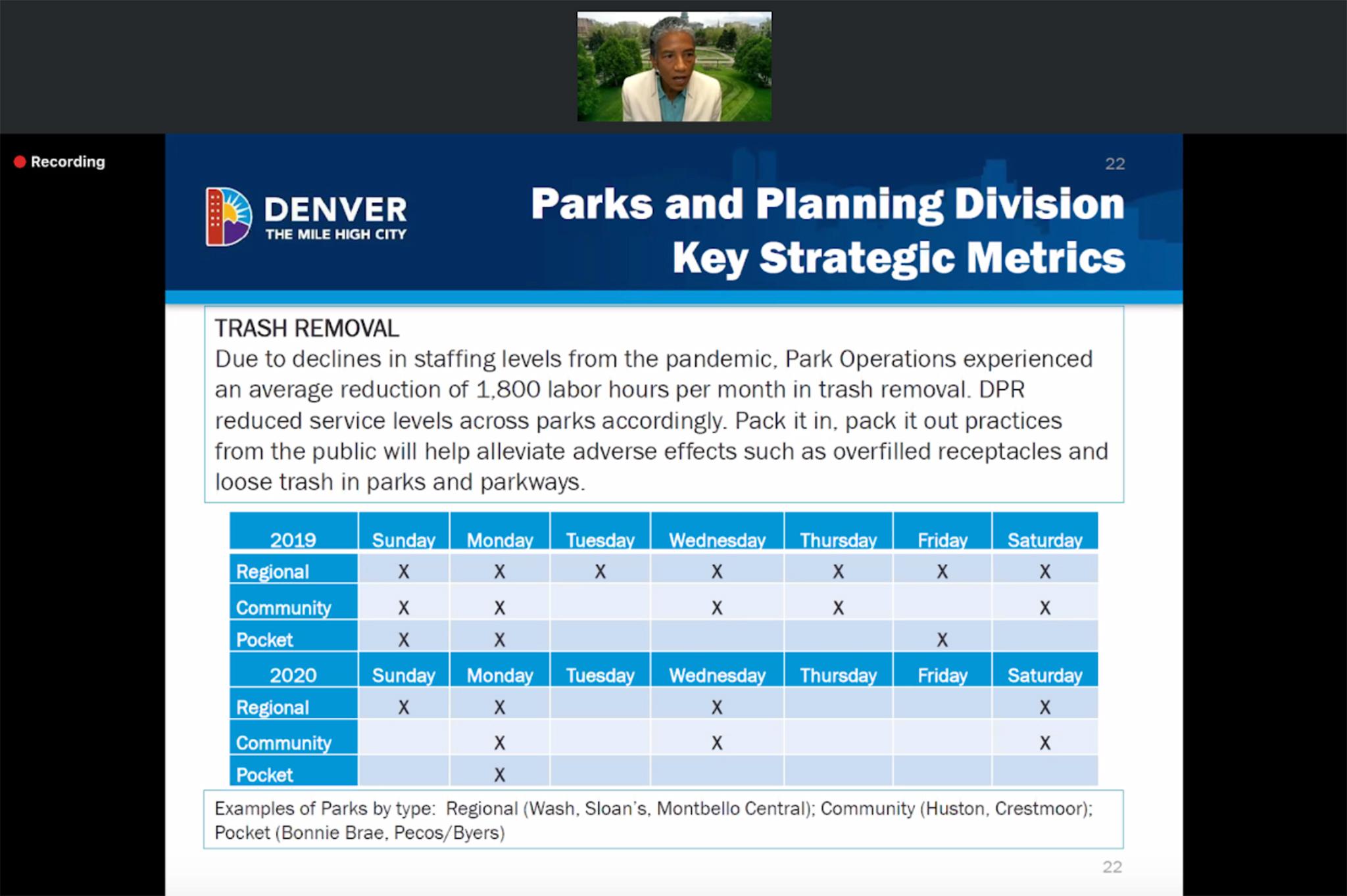
While Gilmore did say the cuts haven't derailed the department's longer-term equity goals, Executive Director Happy Hayne's recent budget presentation showed people will be feeling more austerity as time goes on. Some council members worry that will begin to feel inequitable.
When rec centers reopen, for instance, many of the Denver's largest facilities will operate with reduced hours. Councilwomen Robin Kniech and Jamie Torres both expressed concern that slashing hours at some, like the Rude and Montbello Rec Centers, could drive inequity during a tough moment in the city.
"Youth sports in the private club sector are all open right now," Kniech said during the hearing. Families who can't afford private clubs will be the ones locked out of public facilities when they close early or open late.
Something's got to give, and Hilltop residents recognize there's more at stake than tossing turds.
"I get it," said Steve Reilly, who walks Banksy and Oscar along 6th Avenue twice a day. "It's rough on everybody right now. It's about tradeoffs, and I'd rather it be this than something much more impactful."
Photos showing piles of filled bags have made the rounds on the local Nextdoor pages. During the Parks budget hearing, Councilwoman Amanda Sawyer said she has heard plenty from constituents who noticed the cans' sudden disappearance.
"What my community has seen is a deletion of that service," without much warning, she said.
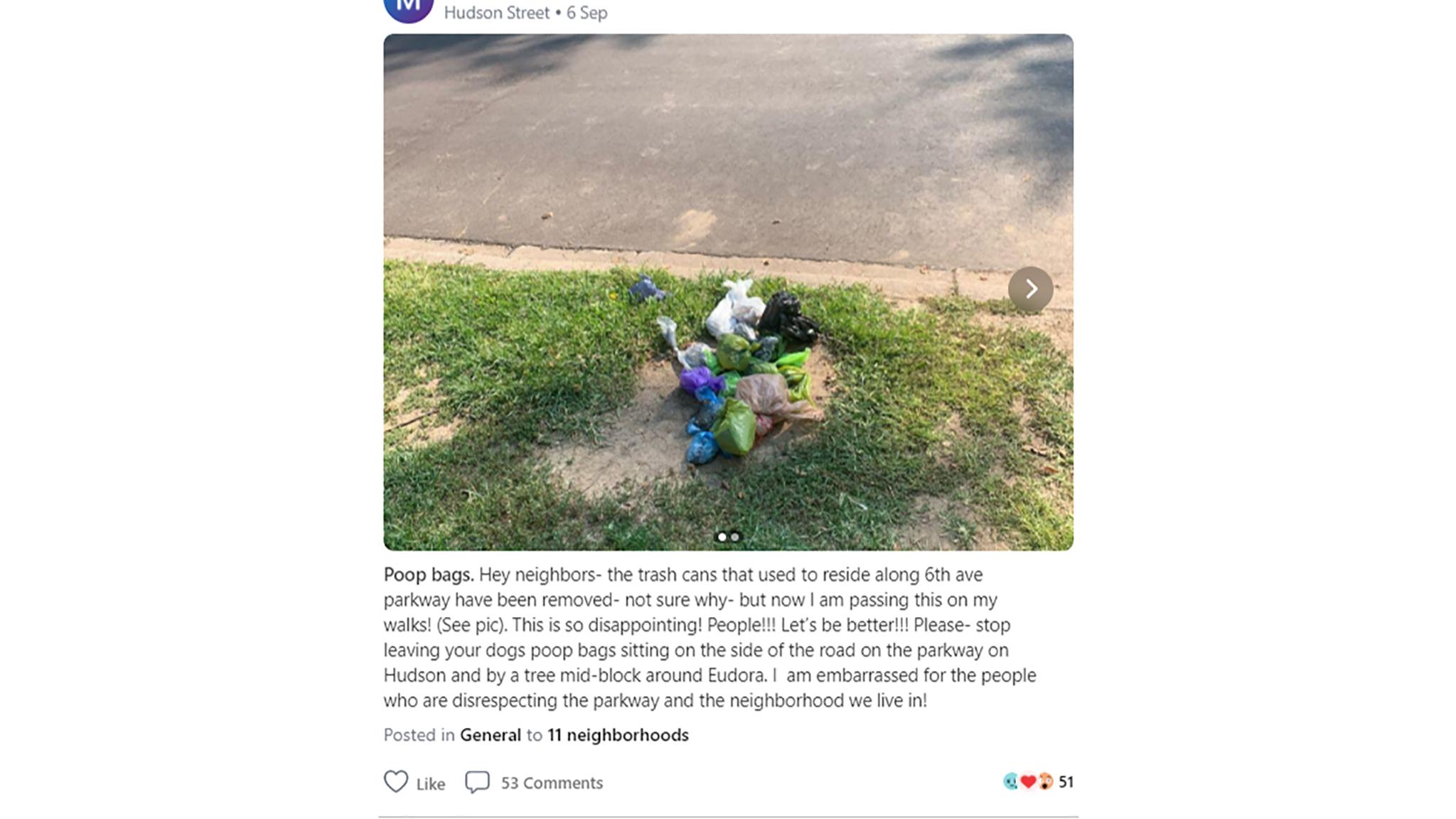
But Sawyer, too, recognized this is the way of the city right now. She requested Parks and Rec might just put up some signs that ask residents to please take their trash with them. As departments begin to cut services, neighbors will have to reconfigure how they use public spaces.
In the absence of trashcans and pickup services, officials like Gilmore want residents to adopt a "pack it in, pack it out" mentality. Gilmore said his department is also working to get new equipment that would make it possible for a single employee to empty what trashcans remain.
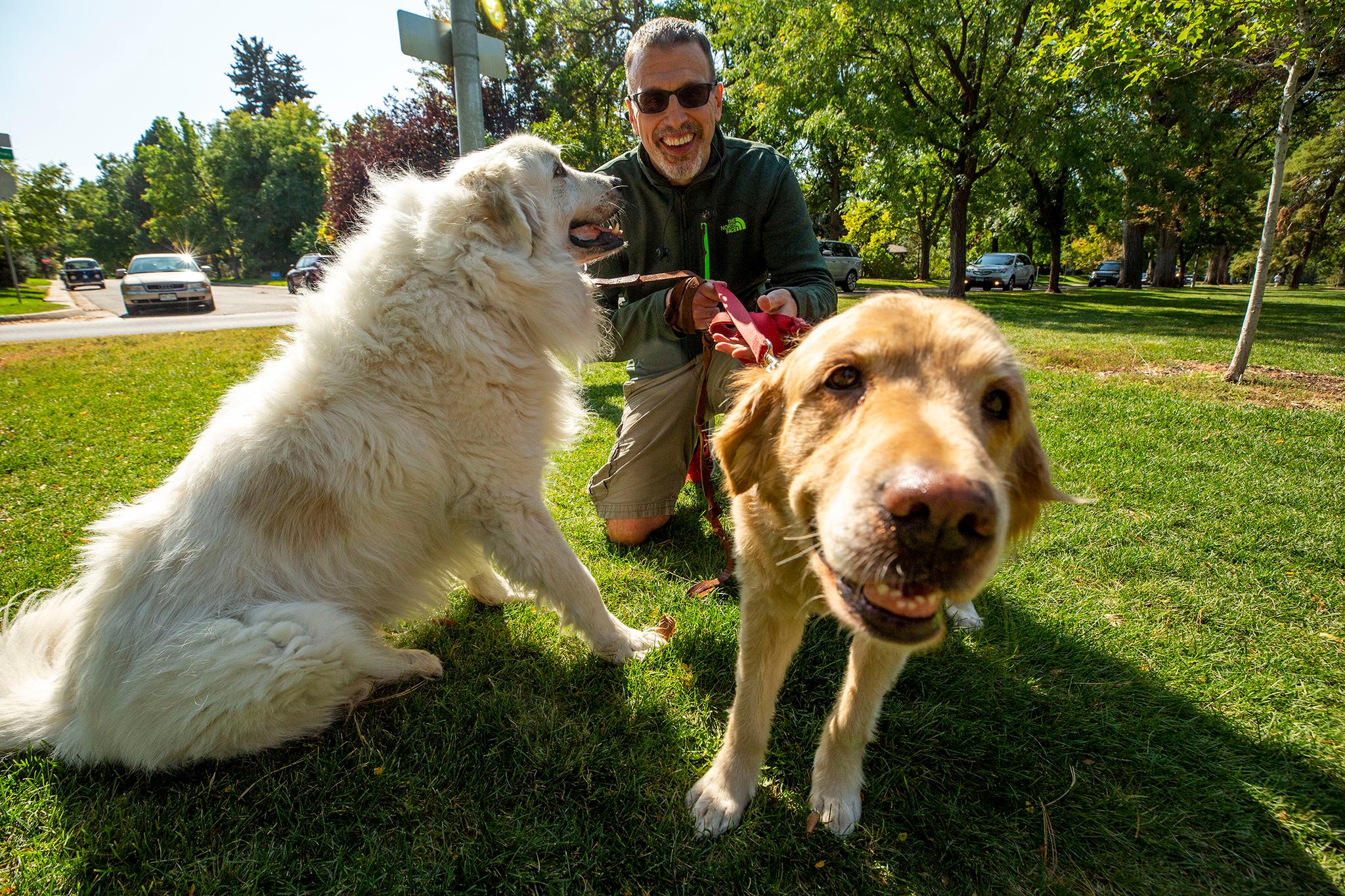
Residents and officials are also organizing volunteer efforts to pick up the slack. Councilwoman Sawyer is planning a community cleanup day on Oct. 11. Josh Weiss, Junebug's dad, said he'd "totally be down" to lend a hand.
Reilly said it makes sense for a "grassroots" effort to take over where Parks is making cuts.
"We're all out here as dogs and people and families," he said, "so we should definitely shoulder some of that responsibility."
Others have already stepped up in larger ways.
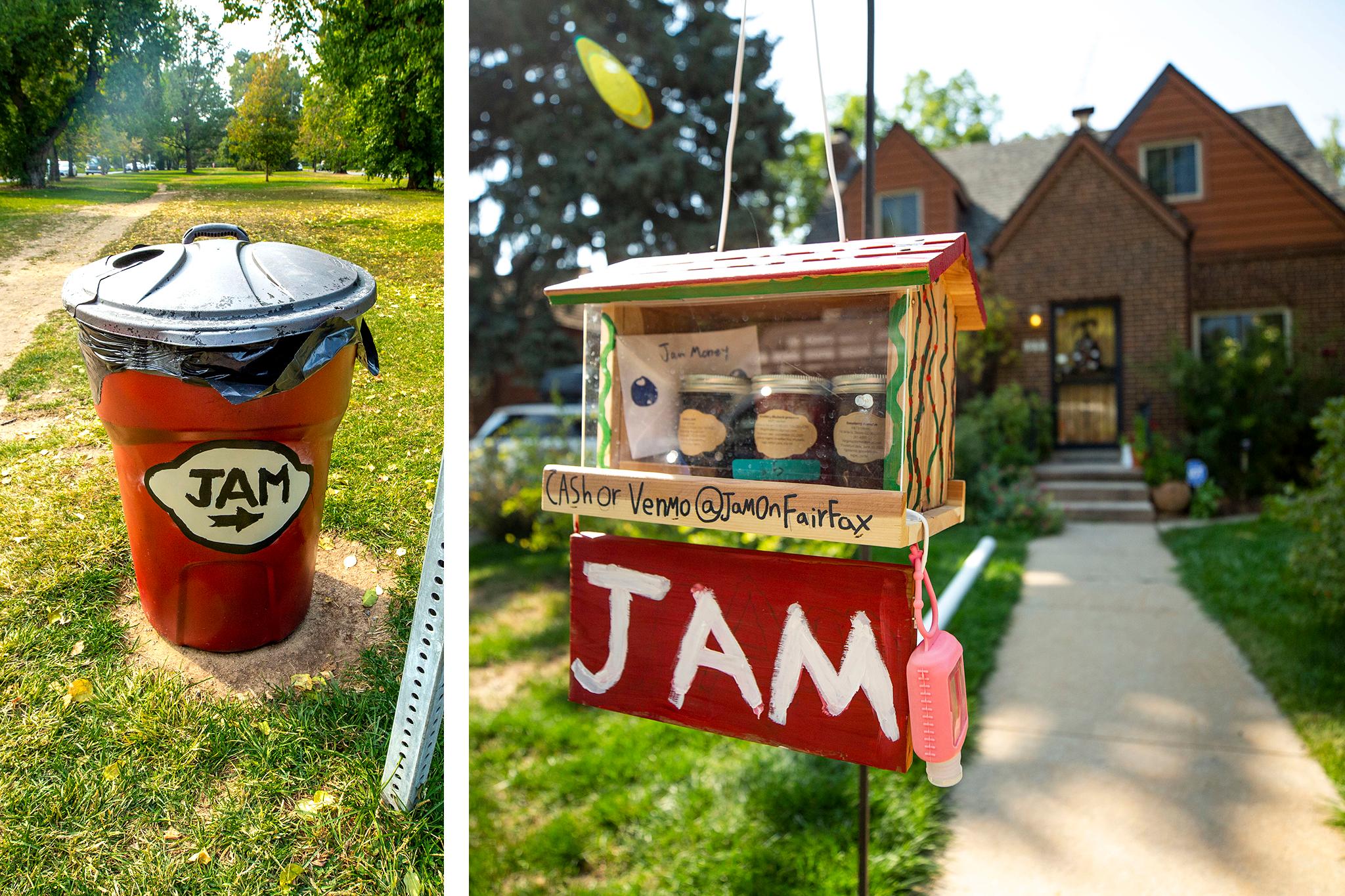
Anna Sidorchuk, who lives a half-block from the parkway, stuck her own trashcan at 6th and Fairfax Street. She empties it a few times a week, and said it's "quite a bit of work."
The kicker? Sidorchuk doesn't even have dogs. She does have kids, however, who have been selling homemade jam from a small cabinet set up in their front yard. The trashcan features an arrow with big letters pointing toward their house.
"We figured it could be good for all of us," she said. "It wasn't totally selfless."

